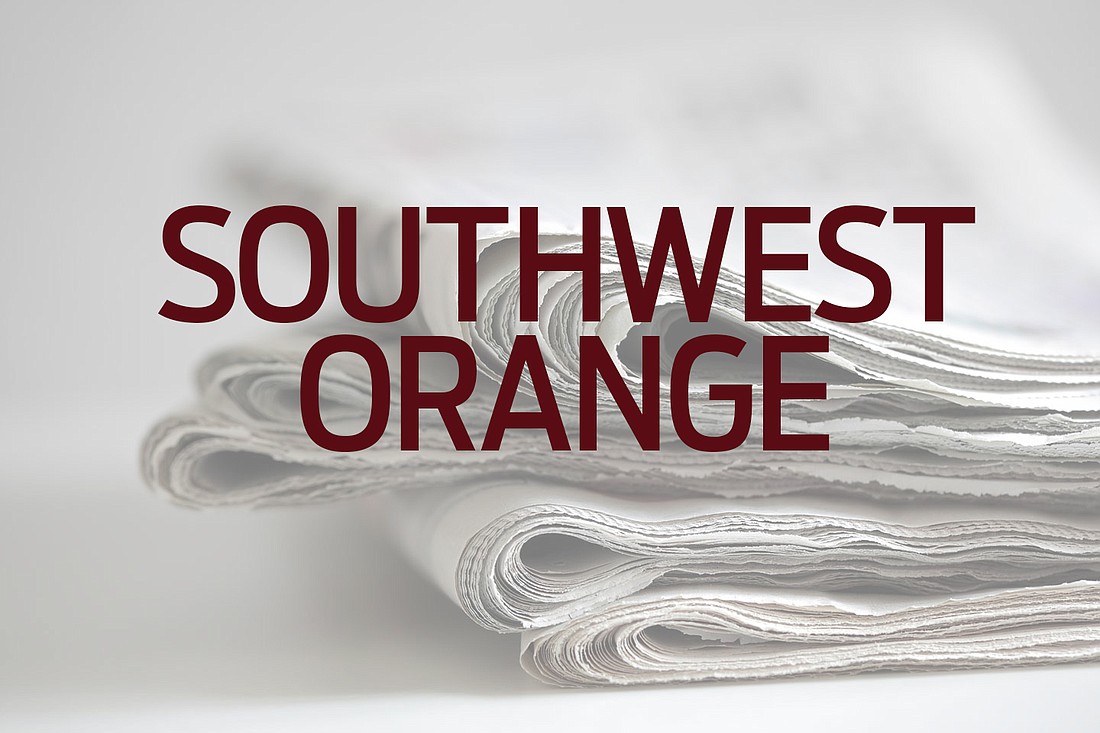- July 26, 2024
-
-
Loading

Loading

Second Harvest Food Bank of Central Florida, St. Luke’s United Methodist Church in Orlando and Olympia High students are teaming up for a hunger-ending cause.
The partnership began this school year and has quickly become embraced by students and volunteers, all of whom are aiming to remove the stigma associated with hunger.
The student-led Titan Market offers healthy food choices at no cost to the students — thanks to Second Harvest and St. Luke’s — and teaches students both leadership and business skills in the process.
Mariam Mengistie, executive director of missions at St. Luke’s, said that the idea is to provide nutritious food and make food accessible for teens at the school through fun and creative ways that involve the students directly.
“How do you make free food accessible to middle and high schoolers in a significant way?” Mengistie said. “You make it available to all. A staffer from Second Harvest came up with this formula of either a business or faith organization partnering with the school and Second Harvest. … The students are running the marketplace. They’re learning leadership skills, planning, executing, leading and promoting. Everything is done by the students, so it gives them those leadership skill-development opportunities.”
Second Harvest is a nonprofit that collects, stores and distributes donated food to more than 550 feeding partners in six Central Florida counties. St. Luke’s purchases the food items for Titan Market through Second Harvest, and volunteers from the church also support the Titans in running their marketplace.
It fits really well with St. Luke’s initiative to increase access to nutritious food, so we jumped on the opportunity. It’s been a really worthwhile involvement for us.” - Mariam Mengistie
“With Second Harvest being a food bank — it’s the largest food bank we have here in Central Florida — they give their food through different means … they can make it available for programs like this at a very, very affordable price,” Mengistie said. “Buying either the nonperishable food items or the fresh produce through Second Harvest really stretches the dollar. Spending a dollar at Second Harvest is more or less an equivalent of $9 somewhere else.”
Through the Titan Market, students can pick up nonperishable food items — and, on occasion, fresh produce — at no cost and without judgment. The market is open each school day, and students from various campus organizations and sports teams volunteer to run the program daily.
Mengistie said that Second Harvest has a few other schools with such markets, and St. Luke’s and Olympia High volunteers were able to visit those markets to learn how they operated.
The church has supported the school in the past by collecting food items for students in need for Thanksgiving and over the summer. However, this is an especially rewarding partnership due to the fact that the five-year vision for St. Luke’s includes reducing childhood hunger through an initiative called Restoring Hope.
“St. Luke’s has a vision to reduce family homelessness and childhood hunger,” Mengistie said of the church’s vision. “For this initiative, we intentionally and strategically work with anchor institutions like the public school system. The school reached out to St. Luke’s and they expressed interest in providing the Titan Market for students. It fits really well with St. Luke’s initiative to increase access to nutritious food, so we jumped on the opportunity. It’s been a really worthwhile involvement for us.”
From the very first meeting of putting heads together to envision what the Titan Market might look like to seeing it come to life and watching the students embrace it, Mengistie said, it’s been a rewarding experience. The students bring energy and kindness with their service, and they have taken leadership opportunities in stride as they refine the project they play a large part in.
“It was really wonderful to see young people taking leadership and ownership and pride in what they’re doing and to see also that they came up with some (recipes) using some of the nonperishable food items,” Mengistie said. “When you grab a can of beans, for example, right next to it there’s a small card with a recipe on how to make a healthy meal out of that.
“Looking at the student leaders in action as they distribute food to their peers and problem solve on the spot was truly inspiring — and the communication that was happening from one table to the other — it was amazing to see that come to life,” she said.